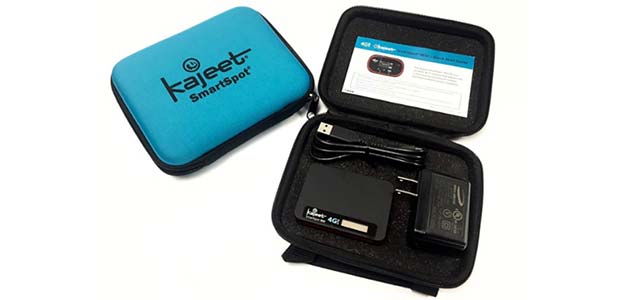Funding, Grants & Awards
5 Winners Named for Homework Gap Grant

Kajeet has selected the winners of its Homework Gap Grant, expanding the number of awards from three to five in response to the number of responses.
The grant was designed to help schools pilot one of Kajeet's home access solutions in an attempt to provide internet access to student outside of school. Among the five winners, four will use the company's Kajeet SmartSpots, and one will use the Kajeet SmartBus. The winning districts will launch their pilots this month and carry them on throughout the school year.
"We were deeply impressed by their stories, and of course the need that expands across our nation to provide all students equal access," said Daniel Neal, CEO and founder of Kajeet, in a prepared statement. "With so much need, we increased the number of grant winners contributing to closing the Homework Gap in even more districts."
Stanfield Elementary School District 24, home of the longest bus route in Arizona, will use a Kajeet SmartBus solution to provide internet access to students who spend more than an hour on the bus each way.
"I'm excited that our students are going to have an opportunity to use digital remediation programs that we now have in place," said Kimberly Christie, math specialist at Stanfield, in a prepared statement. "They were unable to do so before because they lacked Internet access."
The School District of the Menomonie Area will offer students Kajeet SmartSpots as they expand their 1-to-1 program to grades 6-12.
"This grant offers an opportunity for us to pilot providing after-school Internet access," said Katie Krueger, director of technology services for the district, in a news release. "The Kajeet devices will help things go smoothly. By giving students Internet access at home, we are able to remove even more barriers than we anticipated in the first year of the 1-to-1 rollout."
The Unionville-Chadds Ford School District recently began moving toward an all-digital curriculum after a 1-to-1 rollout and adoption of a new learning management system (LMS).
"We are hoping now for timely turn-in of assignments, students to do research at home and maybe staying for clubs after school instead of just doing homework," said Justin Webb, director of technology at Unionville-Chadds Ford, in a prepared statement. "I want to help those kids in need."
Warsaw Community Schools launched its 1-to-1 program three years ago and has rolled devices out across all grades and allows them to go home with students in grades 5-12. Many students in the rural district do not have access to the internet at home or transportation to a local business where they might otherwise access the web.
"We're really looking forward to giving those students who don't have Internet access at home the opportunity to collaborate with peers and enjoy the rich digital content that other students currently have," said CTO Brad Hagg in a news release.
Webutuck Central School District is also largely rural, with many students coming from economically disadvantaged homes.
"I want to ensure that our students have access to anything that they want — whatever they want to learn, on whatever platform, in and outside of school," said Bill Brown, director of technology at Webutuck, in a prepared statement.
For more information, visit kajeet.net.
About the Author
Joshua Bolkan is contributing editor for Campus Technology, THE Journal and STEAM Universe. He can be reached at [email protected].